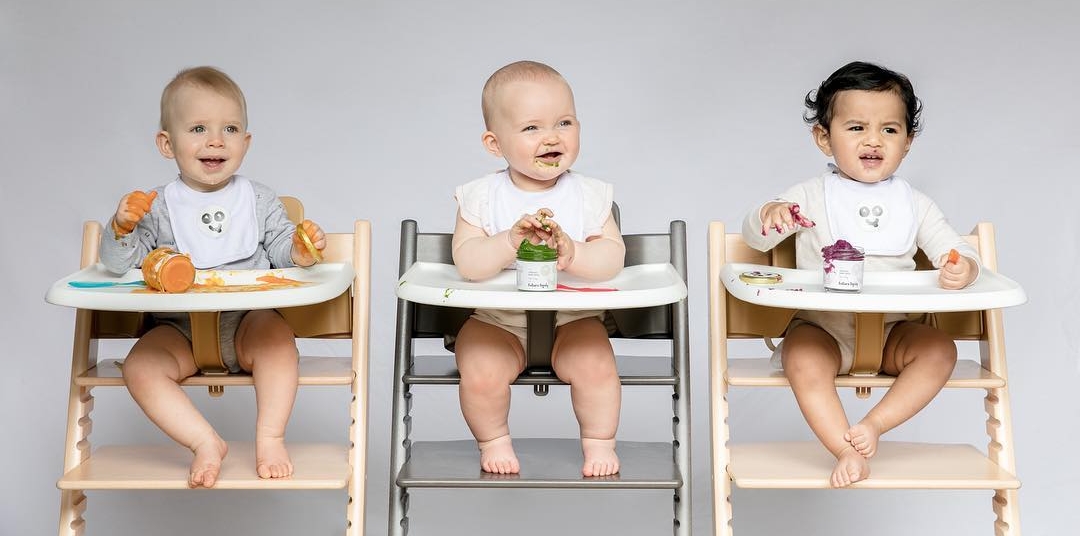Earlier this week I was on Seven Sharp answering a few questions about how Future Foody, a new company that delivers organic baby food to your home compares to the current baby food products available on our supermarket shelves.
The main discussion around the interview was based on the perceived gap in the market, nutritional value, production techniques used in the industry, pricing comparisons and convenience. The segment was about 5 mins long and those that know me, know I always have more to say than 2 sounds bites worth of opinions when it comes to topics such as this, so have jotted down a more well rounded explanation of my position below. Happy reading!
NUTRITION:
Nutritionally it deserves a gold star. The company has worked with a registered nutritionist to make sure that each age group is catered for when it comes to nutritional balance and provides babies with key vitamins and nutrients required at their particular stage. It is as close to home cooking as possible.
What I really love about the product is that it includes dark leafy greens. This is not common in supermarket varieties. For example the ‘Stage Two’ meals include rainbow chard and kale which provides vitamin C, iron and calcium. It is so important that babies are eating iron! Babies are born with enough iron stores to last through to six months of age, however there is very little iron in breastmilk, so by 6 months of age their stores are starting to drop off.
Complete protein ingredients; quinoa, lamb, chicken, beef and salmon are a great addition to your baby’s meals. Your body uses protein to build and repair tissues and complete proteins contain all essential amino acids. Good ole tick.
Future Foody product categories that contain meat consistently feature 20% meat, which is more than double the meat content in the supermarket varieties.
A tip: when looking at supermarket baby food, even if the title of baby food says ‘Spring Lamb & Baby Vegetables’ or ‘Chicken Bolognese’ it may have very little meat in the product. In this case both of the above supermarket titles were only made up of 5% chicken and lamb. Always check the percentages displayed on the ingredients list!
How to ensure a great nutritional outcome from home? If you are cooking at home you are in full control of the composition of the meal. You are able to include dark leafy greens, and able to include a higher quantity of meat than supermarket brands (or conveniently made products). Also, to sweeten the meal, real fruit can be added as opposed to sugar. Real talk tip: If a baby food product has the word sugar in the ingredients list, consider it a dessert - it is not an item worth buying. Babies do NOT need added sugar in their diets, especially while they are developing their taste profiles. Try to sweeten their meals with real fruit - that way your little one is also getting antioxidants and fibre. It took me awhile to identify Poppy’s sweet spot (she is now 3 yrs old), but I soon learned that if I added pears to ANYTHING, then Poppy would eat it. She was not a fan of apple or kiwi fruit as a sweetener, took a while for me to figure that one out but got there in the end!
When choosing supermarket products look at the ingredients list. Lets keep this simple. We do this for all foods in the supermarket - baby food is no different. Again, (it’s worth repeating!) avoid the product if it has ‘sugar’ (or apple juice concentrate) in the ingredients list. Make sure the ingredients list has recognisable food items listed. No need for cornflour, emulsifiers, vegetable gums, “natural flavours’. Go for a product that has veggies in it. Surprisingly there are a lot options that didn’t contain any veggies at all.
In saying all this, lets not sensationalise the topic, these processed food pouches are not going to harm your baby, but just a few things to look out for, and a good reminder not to rely on supermarket foods for every meal.
PRODUCTION:
Firstly it is great that an NZ company is willing to be so innovative with their efforts to maximise the nutritional value of the food during the food processing. Future foodies says that their main point of difference is by using a process called ‘SoftCare’ which preserves the nutrition by cooking food at a lower temperature (it is well known that nutrients contained in foods are significantly lost during high temperature processing methods). However I think that the production aspect is the least of our worries when comparing their product to a large proportion of baby foods on the shelf.
What matters MOST, is what ingredients are going in. If rubbish ingredients are being used, the level of manufacturing is not going to help it. Future Foodys ingredients list consists of good nutritious whole foods. When choosing supermarket products, (again), avoid those with added sugar, or look out for entire meals made up predominantly fruit which does not provide any iron or protein. I personally think Future Foodys real value lies is in the quality of their ingredients.
COST:
Prices start from $4.50 to $5.50 plus delivery fee of $6.50 inner Auckland and $9.50 outer Auckland. (Auckland only at this stage).
I’ll be honest. If my baby decided that day that she didn’t want to eat that meal or flavour, then I would cry. Thats a lot of money wasted on the floor...(walls, windows, roof).
Supermarket varieties are approx $2 per serve, and can be cheaper when supermarkets offer multi-buys.
Better still, combining seasonal produce (seasonal = cheap), plus meat, and fresh (or tinned) fruit will save you a lot of money...but it does cost you a bit of time.
CONVENIENCE:
It saves time - no question about it. If a parent can afford the product and is need of time saving tools, then it’s a no brainer.
This segment created a bit of a storm in a teacup and many comments made on the Seven Sharp facebook page from the general public were a tad accusatory about parents not ‘making’ the time to feed their babies. There are many reasons why modern families feel time poor. Both parents working, limited support around, physically unable to cook, limited transport access, etc.
I experienced PND when Pops was about 12 months old and little daily tasks appeared very overwhelming. I value nutrition (comes as no surprise) so a priority for me was making sure Pops ate well.
If I had the reassurance that she was eating beautifully nutritious food while even temporarily removing the task of cooking, it would have been pretty helpful during that time! Every family/ parent/ baby is different - be kind to each other fellow parents, ditch the urge to judge.
So to conclude - I think this is a useful new service that is an asset to parents that want to feed their kiddies healthy foods, can afford it and require time saving tools while their bubs are little. HOWEVER if your budget doesn’t stretch that far, it is so incredibly cost effective to cook healthy food at home that is just as nutritious. Plus there are plenty of options in your supermarket that do not contain sugar and rubbish fillers that are perfectly fine to supplement with your home cooking.
Do your thing, do what works for your family and enjoy hanging out with those chubby cheek little messy eating rays of sunshine.
Abbie x
Link to video: https://www.facebook.com/sevensharp/videos/10156673826197268/
Note: Other companies in NZ who offer baby food delivery services are foodiebabe.co.nz and twospoonsbabyfood.com
Any excuse to show pictures of my wee fam. Love 'em.





